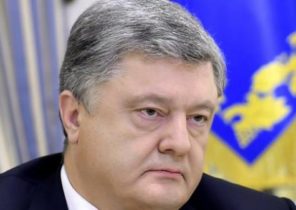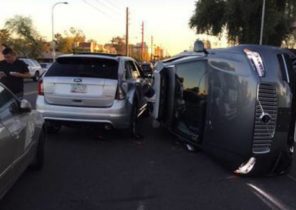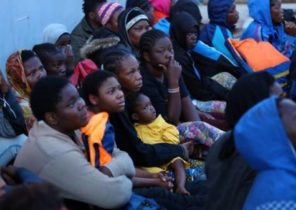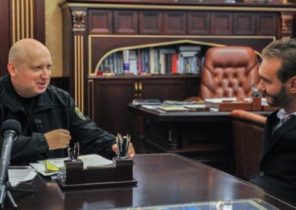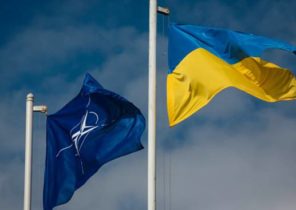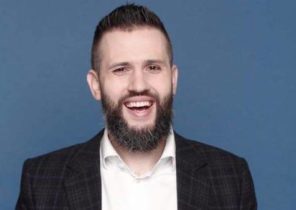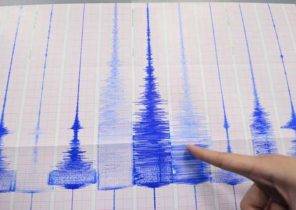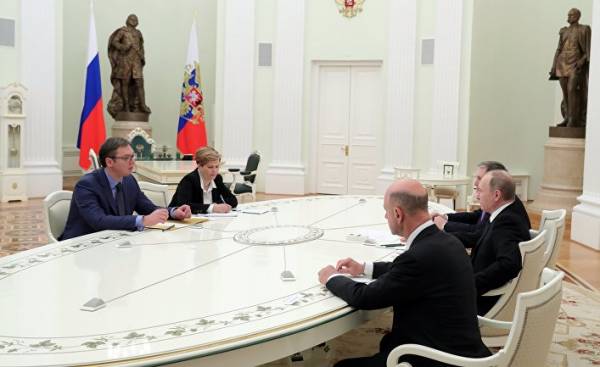
“The devil we know is better the devil we don’t know”.
This quote at a recent Economic forum in Moscow, one of the senior members of the Russian government explained Professor Srdja Trifkovic the attitude of Russia to Alexander Vucic. Based on this conversation, and conversations with other representatives of the Russian authorities, says Professor Trifkovic, it is clear that they understand that means they survived. They are not happy with all aspects of his policies, but at least you can expect stability and predictability. In addition, they believe that the play in Macedonia made a certain sobering effect on Vucic, allowing him to understand what role the European Union plays in this region. That is, words Vucic that he will not allow the repetition of the Macedonian script in Serbia, Moscow was seen as a kind of veiled criticism of the European Union. Probably Russia now considers Aleksandar Vucic the best option.
Russia congratulated them on the victory
The importance of stability as one of the arguments for the support of Russia Alexander Vucic to acknowledge the congratulations which the Russian authorities sent him after the election. First, the President of the Russian Federation Vladimir Putin congratulated with the victory and called Vučić “principled supporter of strengthening the friendly relations between Serbia and Russia.” Furthermore, Putin expressed confidence that the activities Vucic for the post of President of Serbia “will continue to develop Russian-Serbian strategic partnership for the benefit of the brotherly relations between the two countries.”
Press Secretary of President Putin Dmitry Peskov spoke more frankly, few outside of the diplomatic framework and stating the message that “Moscow is like the victory of Aleksandar Vucic”. Russian Patriarch Kirill said that the victory of Vucic will contribute to the preservation of traditional moral values, and expressed hope that the new President “will continue to strengthen the good relations between the two brotherly peoples.” The Chairman of the international Affairs Committee of the Federation Council Konstantin Kosachev said that the victory of Vucic guarantees the stability of the relations between Serbia and Russia, and Vladimir dzhabarov, first Deputy Chairman of the Committee said that “relations with Russia will remain a priority for Belgrade and guarantee his safety.” Finally, the Russian Ambassador to Serbia Alexander Chepurin stated that “the victory of Vucic was given a mandate to expand cooperation with Russia.”
Russian support
Let me remind you that before the election at a meeting with Prime Minister Survived in Moscow, Vladimir Putin is almost openly expressed his support, saying “we expect success in the elections in Serbia.” As Putin’s representative at the rally of the Serbian progressive party in Belgrade was Pyotr Tolstoy, who came to Express support on behalf of the President of Russia, Prime Minister Vucic. Just a day before the end of the election campaign rally in Kragujevac was visited by a representative of the “United Russia” in the Balkans Sergei Zheleznyak, who reiterated the support of Vučić and Vladimir Putin said he was confident in the further development of relations between the two countries.
After the elections in Belgrade began protests against the results and “dictatorship” Alexander Vucic. These performances, according to press Secretary of the Russian foreign Ministry Maria Zakharova and the already mentioned Sergey Zheleznyak, were another clear message to the Belgrade authorities. Zakharova said that many international observers have confirmed that significant violations in the elections was not that elections reflect the will of voters. Also, she said, Moscow hopes that “all the political forces of the country will show a responsible approach and will not allow destabilization of the situation in Serbia.” Sergei Zheleznyak spoke more frankly than Maria Zakharova, noted that the goal of the protests is “to undermine the country’s sovereignty.” Alluding to the fact that for a similar color revolutions are the United States, Zheleznyak said that certain structures aimed at a color revolution, attempting to take the young generation of Serbs to plunge Serbia into chaos and violence.
What is connected with Russian support Vucic?
All of the above suggests that Russia directly supports Aleksandar Vucic and considers it the most (for me) the best option of the Serbian leadership. In many Serbian circles this support associated with a lack of long-term Russian strategy in the Balkans and in Serbia. Such opinion may be warranted, especially with the national opposition point of view. But the question is whether “the devil we know” part of this strategy?
In terms of Serbian political life, particularly national and Patriotic wing, it is difficult to detail the reasons for the Russian support Alexander Vucic, given his actions related to the Brussels Treaty and the Treaty of the IPAP (Individual partnership action plan with NATO). However, speaking of “the devil we know and who we don’t know”, is to compare the previous Serbian government of tadić with the government of Aleksandar Vucic, and then some things that contributed to the Russian support of the latter, becomes evident.
Russia gives Serbia the weapons
The most telling moment was the acquisition of strategic and other arms from Russia (and Belarus) in the form of six MiG-29 planes to be equipped with the most advanced equipment of the fourth generation, as well as 30 tanks and 30 BRDM sent as a gift. Russia is moving towards Serbia, giving her MiGs, provided that Serbia will pay their repair cost about 180 million euros. Given that one such aircraft with all equipment from arming until the component is 60-80 million euros, we come to the conclusion that these ten MiGs (in addition to the six Russian will be renovated for another four Serb) would cost Serbia about EUR 600 million. Now she got them for $ 180 million. That is Russia and Vladimir Putin made a very friendly gesture towards Serbia. Delivery of the MiGs will be delayed because of transportation. To deliver them to Serbia, or need to obtain the consent of some NATO countries to the flights of these aircraft or transport aircraft disassembled transport aircraft.
Speaking about this strategic development of military cooperation, it is important to note that the previous government and even before it showed absolutely no interest in buying Russia, strategic or other weapons. In this direction the government of Aleksandar Vucic made a big step forward. Even in relation to military cooperation it is important to remind that in 2011, the government Tadic refused to send Serbian troops to the victory Parade in Moscow, and of the government Ivica Dacic and Aleksandar Vucic (in 2015) not have refused, despite the objections of the West. In addition, unlike the government of tadić and his previous, the government Aleksandar Vucic has begun conducting military exercises with Russia and Belarus — the first in Belarus and then in 2014 and several times in Serbia.
These military exercises called “Slavic brotherhood” — as the eyesore of the West and NATO, because they seek to dominate the region and bring it under its control. The negotiations on anti-aircraft missile systems BUK and C-300 that were expected, if successful, negotiation will be received under the lease, as is the case with India. These complexes, according to the plan, may appear in Serbia during 2017 or 2018.
If we consider that the development of cooperation with NATO lasted for 12 years and was marked by events similar to the above in the framework of cooperation with Russia, it can be concluded that when Vucica terms of proportions in more developed military cooperation with Russia, not NATO. This ratio does not change even already mentioned IPAP, since the Treaty was signed by the previous government, and when Vucica only been ratified. The essence of the contract was the same SOFA (Agreement on status of forces), which was signed and ratified by the government of the Democratic opposition of Serbia (DOS).
The question for Russia, NATO, of course, has its own red line. Not to cross it, the Serbian authorities will not be guaranteed, given Russia’s fundamental support in the fight for Kosovo and Metohija and delivery of strategic weapons on privileged terms. Russia, some allies, which signed the IPAP with NATO, Serb considers IPAP as a necessary condition for Serbia supporting the Serbs in Kosovo and Metohija.
Them Serbia is obliged to protect, having established good relations with the Alliance, since 1999, on the fate of Serbs in Kosovo and Metohija, the Serbian army is not affected. For the Republika Srpska such mandatory conditions do not exist, and its relations with NATO and the West more free. January 9 this year, the country’s President, Milorad Dodik, with the support of Russia and Serbia, said that Republika Srpska refuses rapprochement with NATO and together with Serbia and Russia will build the active military neutrality. Thus, this is yet another guarantee that the red line in relations with NATO will not interfere.
Kosovo-Crimea, Srebrenica, sanctions
Kosovo is another area providing opportunities for the development of Serbian-Russian relations.
A specific example. In 2010, during the vote on a resolution on Kosovo and Metohija at the UN Russia has proposed to the Serbian resolution on Kosovo and Metohija, their diplomatic support and the support of the SCO’s development. However, Boris Tadic, refused to help, has withdrawn from the Serbian resolution, yielding to pressure from the West, and moved (lowered) negotiations about Kosovo and Metohija from the level of the UN security Council to the EU level. Thus he long has identified the Serbian fate in this matter and destroyed most of the Serbian diplomatic levers that were used in the fight over Kosovo on the international level.
On the other hand, the government Vucic, though, and signed the Brussels Treaty, but asked for and received help from Russia in a diplomatic struggle achieving that Kosovo was not accepted in UNESCO. When the author of this article visited the Federation Council, this information he confirmed by Konstantin Kosachev. He said that the Russian side supports the constant contact with the Serbian government in connection with this issue. Fight Serbia and Russia prevented Kosovo’s accession to UNESCO.
Often, in an argument that suggests that insincere attitude of Serbia to Russia, given the fact that Serbia did not recognize the Crimea part of the Russian Federation. However, Russia’s approach to this topic constructively and understands that Serbia was constrained by the situation in Kosovo and can not recognize the Crimea a part of Russia. After all, the goal of Serbia is to prevent further recognition of Kosovo. Russia has freedom of action and could return to the Crimea himself, not paying any particular attention to international opinion. Serbia has no such freedom, and Russia knows it.
Srebrenica — or British resolution on the alleged genocide in Srebrenica from 2015 is another positive example of cooperation of Serbia and Russia, in which Alexander Vucic and Tomislav Nikolic has asked Russia to veto the resolution, and Russia has responded positively.
Finally, Serbia (and most important) is the only country in Europe which has not introduced sanctions against Russia, showing, thus, a degree of independence and bonLSI sovereignty than other European countries, under US pressure, imposed sanctions. It is particularly noteworthy that, despite these sanctions, trade between Serbia and Russia is on the rise. Increasing the export of Serbian goods to Russia, as confirmed at the meeting in Moscow President Putin, “hailing the efforts of the Serbian government”. It was an open praise of the Russian President in the government of Aleksandar Vučić for the development of economic cooperation.
Russia maintains a strong power in Serbia
Somehow conversing with Sputnik, the Russian Ambassador to Serbia Alexander Chepurin stated that Russia maintains a strong power in Serbia, or rather, the power that supports more than 50% of the people, because such power no one will be able to influence from the outside. If translated from the diplomatic language, Russia approves of the government Aleksandar Vucic supports more than 50% of voters, because it gives Russia the basis for trust and building stable relations between the two countries and ensures stability in case of possible regional unrest. Indeed, in the case of regional turbulence will exist one strong centre of decision-making, which may not succumb to Western influence.
In other words, if the instability in Serbia will run the government, formed of a few strong political actors or coalitions of those who use insignificant political support of the people (in the government of tadić is the strongest factor, that is, the Democratic party had slightly more than 20%), then the probability of pressure on small political components of the coalition, from which, however, depends on the entire coalition. As for the government Aleksandar Vucic, then there exists one strong party (SNS) and one weak (SPS) political entity, which as such guarantee stability in relations with Russia in the internal Affairs of Serbia and in decision-making in case of a possible regional instability.
Yanukovych Vucic and Serbia as Ukraine
Finally, the Russian position about the protests that are happening these days, and which is compared with the color revolutions aimed at destabilizing the country and the government enjoying the confidence of more than half of the electorate, is evidence of really heavy support from the Russian government, Alexander Vucic. The script of the opposition protests were predictable, right down to the script Ceausescu, who remembered Sasha Jankovic. And also pre-tensions were pushed to the limit: Vucic you either love or hate it. This is what brought on the streets a certain number of people supporting the opposition. However, the predictability eliminates any chance of “spontaneous” protests, because the opposition is so exacerbated the situation (the power, probably, this also contributed to) that took one call one person on Facebook that kindled the flame.
It is impossible not to notice the similarities with the Maidan in Ukraine, where protests began in the time of a possible reversal of Ukraine to Russia and the West began to break the hold. In Serbia, the protests also take place in a period of rapid development of Serbian-Russian cooperation and networking between Serbia and Russia. In Ukraine, as in Serbia, all started with “Facebook” and “Twitter”, and the opposition supported this process. After nine unauthorized, as in Serbia, protests, Yanukovych made a mistake: he brought to the streets of the police, as the demonstrators tried to break into Parliament. Serbia expects the same scenario, if more people join the protests?
Here, however, it is important to note that Yanukovych did not listen to Russia. After all, if Angela Merkel urged Putin to ask Yanukovich not to use police force. Yanukovych followed the advice and made a fatal mistake. The media took advantage of the situation and the fate of the President was resolved. In Kiev blood was shed. What is happening is out of control when the protests were joined radical right-wing organizations like “Right sector”, which spoke out against the police, applying and snipers, and firearms. Came to power the opposition. Yanukovych fled to Russia, and today Ukraine is a country that is separated from the EU, and Russia lost the Crimea, tortured by war and poverty (the average salary is 150 euros).
The Russian authorities had foreseen such events in Serbia, this was known before the election. Russia told Serbia its findings on Macedonian scenario of a color revolution. It is no coincidence the rally in Kragujevac Sergei Zheleznyak said Russia hopes the elections “will be held in a civilized manner”.
Based on the Ukrainian experience, Russia warns Serbia and all its political forces, to prevent the destabilization of the country, and in this matter stands on the side of power. Russia does not want Serbia to end up like Ukraine, becoming politically divided and unstable country with a ruined economy. Although many in the region would welcome the destabilization of Serbia, wanting to benefit from her vulnerability.
As said Sands in a statement, Russia welcomes all political forces in Serbia that advocate the further development of relations between the two countries, and as Alexander Vucic is a supporter of this process, the Russian impressed with his victory. Such a statement Peskov, along with the words Maria Zakharova and Sergei Zheleznyak, of course, is a veiled message to Pro-Russian forces in Serbia that they should not participate in protests and projects a color revolution.
They are now in Serbia to actively support the Pro-Western party, the Pro-Western opposition presidential candidates, Pro-Western NGOs and activists, and Pro-Western media. Even if the protests were really an initiative of independent activists, by their nature, these performances satisfied the Pro-Western structures, so-called deep Serbian state, which controls provashingtonskih elite. These structures took on the role of patrons of the protests and want to use them for their own purposes. These performances suit the West, which sees them as a hindrance to the development of Serbian-Russian relations and the aspiration of Serbia to regional stability in the interest of economic progress.
The problem of the West is that now, unlike in 2000, Serbia has no “Right sector”, prepared as in Ukraine, to strike a sweeping blow at the government, the police, the government and forced to destroy them. This has happened the fifth of October.
Let’s obstreperous all of the aforementioned reasons for the Russian support Alexander Vucic and think, there is something else. Let us ask ourselves the question, does not know whether Russia Vucica about something, he does not know the average citizen of Serbia, or Russia is just pursuing its own interests and believes Vučić “lesser evil” at this point? Does not tell us whether Russia’s behavior “the devil we know”, we are not so familiar, and if we do not participate in the bringing to power “the devil we don’t know”?
